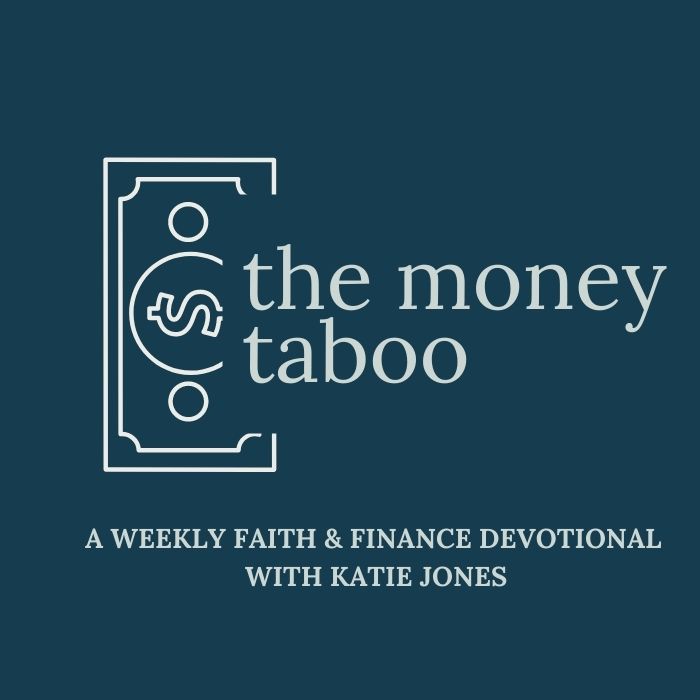What is the Love of Money?
For the love of money is a root of all kinds of evil. Some people, eager for money, have wandered from the faith and pierced themselves with many griefs.
1 Timothy 6:10
We’ve all heard and read this verse many times, and most of us know that it is not money that is ever the problem, but the love of it. Yet, I would argue that the majority of us (I’m including myself in this statement) would never admit that we suffer from the love of money.
“Surely, the over 2,300 Bible verses about money (especially those that mention the love of money) are meant for everyone else but myself.”
But the reality is that all of us struggle with the love of money.
How do I know this? Well, before ever getting to know you, I know that you deal with being seduced by money because the Bible itself discusses it numerous times! If there is something that many human beings struggle with then clearly God will have something to say about it.
But what is the love of money? And how do you know if you suffer from the love of money?

What Is The Love Of Money?
So what exactly is the love of money?
The love of money is simply the act of thinking that money can do for you what only God can do. It is putting the pursuit of money above the pursuit of God.
“We are seduced into thinking that if having some money made us happy, it stood to reason that having more of it would make us even happier.”
Dave Hataj, Good Work
“Every day millions of us are seduced into asking money to do for us what only God can do.”
Paul David Tripp, Redeeming Money
The love of money doesn’t usually show up as desiring to buy lots of fancy things, accumulating tons of debt, or being really salary obsessed. The love of money shows up in a simpler form than most of the things we would typically characterize as loving money.
When we put our security into our bank accounts rather than in God, we are loving our money.
Heart Conditions that Lead to the Love of Money
How does this seduction happen? How do we tumble down the slippery slope of loving our money until we have reached the point of blocking out God altogether?
Like many sins, temptation creeps up on us. It is stealthy and difficult to recognize. In fact, one thing I have come to realize is that the path to loving our money is a lot easier to follow because it is widely accepted as “normal” especially here in America. Check out a few of these heart conditions that lead to the love of money and think about how they may have affected your own heart.
Ingratitude
Ingratitude is the condition where we cannot see how much we are already blessed with.
A grateful person is aware that they deserve nothing of all that they possess and enjoy. They see all that they have as a blessing all the way down to the smallest things in life.
The ungrateful person keeps telling themself that they deserve more than they have. They are way more aware of all that they don’t have. Living an entitled and demanding life often justifies wasteful and selfish spending.
- Justin has a great tech job in the city, yet, he comes home to his wife complaining that things would only be better if he was just given a promotion, a raise, or if he found a better paying job.
- Lindsay comes home every night to her affordable 900 sqft apartment that she shares with her one cat. When she sits down on her couch in the evening, she can’t help but feel bad for herself because it seems like all of her friends are buying big homes with huge yards, and she just feels stuck.
Need
With the help of modern marketing, we believe many things are necessities when in reality they are luxuries. Larger homes, bigger yards, 3 pairs of the same kind of shoe, new dresses for each event we attend, the fastest wifi or cell service, surround sound speakers to go with our flat screen tvs, name brand clothes because they are better quality, a phone charger in every room of the house, and 2 day delivery.
When we deem something as a need it is easy to justify the excess of spending in order to obtain it. We think we have a right to certain things and we waste all kinds of money to satisfy those needs.
- Dustin and Patti and their 2 boys live in a 2 bedroom 1 bathroom home. Most weeks after the kiddos are asleep, Dustin and Patti spend their time plotting how their move to a bigger home because even though this house is completely fine, they are convinced they need more space in order to give the boys a good life
Discontentment
Discontentment leads to us buying more, bigger, or better in order to fill holes in our lives that only God has the power to fill. This happens when we feel like we never have enough and are constantly looking for ways to earn more.
Discontentment makes us feel like something needs to change. Whether that is our look, our location, our job, or something else. Society teaches us that if we aren’t happy with what we have, then change it. And that change typically comes after a purchase. Consumerism is a real epidemic as it has become very normal to buy your way to happiness.
- Anna works from home and is always looking for ways to make her work life a bit more comfortable. Most of her work equipment is relatively new, yet she is always finding something to complain about. Recently it has been her desk. It’s not big enough to fit her two monitors, the handful of decorations she has, and still leave room to set down papers comfortably. She decides to replace it with a brand new desk that will fit everything on it. Her husband knows the drill though. It’s the desk this week, but it will be something else next week.
Envy
Envious people are always taking account of what their neighbors have that they have yet to acquire. They are continuously comparing and putting themselves into categories of “she has” and “I don’t have” We see the wealth of others and are jealous of it.
Envious people often feel that they have drawn the short stick and that the world is out to get them. Envy drives people to grossly misuse money – particularly when it comes to debt. Unfortunately, this path often leads good people into deep financial ruin.
- Meghan and Timothy really enjoy traveling. As teachers though they don’t make a lot of money. Their best friends Samson and Christina seem to travel to exciting places one a month. Meghan is always frustrated that they can’t travel as Samson and Christina can. Timothy decides to surprise her with an extravagant overseas vacation. Meghan doesn’t question it at all, but she knows that the only way they can afford the vacation is to put it all on their credit cards.
Fear
When our hearts are full of fear we tend to lean more on our own works and stop trusting God to provide for us. Fearful people become very stingy with their money and would rather save it all instead of using it or even being generous with it.
It is very clear when fear is gripping your heart because you will notice that you are more concerned with your own security, and accomplishing your own future goals, rather than letting go and allowing God to do the work.
Fear often leads us to rely on our own works and abilities. We feel comforted when we have full bank accounts.
- Cindy is very goal-oriented. While it is evident that God has given her the ability to set good goals and stick to them, Cindy often puts her pursuit of these goals above the pursuit of God. She fears that if she does not work diligently on achieving her financial goals she will never achieve them. Her distrust in the promises of God’s provision in the Bible has led her to stop being generous with her money in order to achieve her goals even sooner.

When We Become Too Focused On Ourselves
When we become too self-focused, these heart conditions creep up in our life. And they lead us to spend loads of money on things that we feel like will satisfy us. Until we realize that the satisfaction was only temporary – like a quick hit of a drug. We become addicted to the dopamine rush when we make purchases and our life becomes so much about money.
But we are blinded to the fact that our life has become centered around ourselves and what money can do for us.
This is the problem that the man in the Parable of the Rich Fool had in Luke 12. Even though the Bible encourages saving money, we must be careful not to save up all for ourselves.
The world has done a good job in making us believe that we deserve it, we need it, and if we don’t have it yet we must be willing to do anything to get it. Even if that means falling further into debt, working longer hours, or even cutting corners.
The problem with money is not that it exists or that we have it. In fact, there were many wealthy people who loved the Lord that we read about in the Bible. Money is simply a tool. Your money problems and my money problems are always deeply rooted in heart problems. If we ignore these underlying diseases of the heart, they will lead to the death of our souls.

How to Cure The Love of Money
Money is a blessing from the Lord – a tool to be used, yes for our enjoyment, but more importantly for the glory of God! This is what Biblical financial stewardship is all about! The first step in healing ourselves is to first admit that we do suffer from the love of money.
Three Ways to Fight Against the Love of Money
1. Gratitude
When the envy monster tries to take over my heart, one of the best ways I have found to fight against him is by listing all of the things I am thankful for. This helps me to focus on the blessings I am already surrounded with. Check out these Bible verses about gratitude that will also help you out!
2. Generosity
Instead of focusing on your own “needs” or wants, shift the focus to the needs of others.
In Matthew 19 we learn about the testimony of the Rich Young Ruler who asks Jesus how he can obtain eternal life. In verse 21, we read, “Jesus said to him, ‘If you want to be complete, go and sell your possessions and give to the poor, and you will have treasure in heaven; and come, follow Me.’”
In Luke 19 we read about Zacchaeus the tax collector who decided on his own accord that because of all that Jesus had done for him, he would then go and give away half of his possessions.
When we have wealth, one of the best ways to ensure that we do not allow it to be our comfort and security is by being outrageously generous with it! Don’t hoard it for yourself, instead, seek to use it as a tool that can help build the Kingdom of God. Generosity is spoken about a lot in the Bible, and is one of the main biblical financial principles we must adhere to as followers of Christ.
3. Pray and Seek the Lord
Go to God and confess your sins. Ask for forgiveness for your past sins. Then continue to pray often over your finances!
Check out my free 14 day Financial Revolution Prayer Challenge to help you reorient your heart to God’s will for your money.
The truth is, there are always going to be outside influences at play and you will again be seduced by the love of money. We are broken people prone to a life of sin and therefore will never be able to 100% conquer the love of money. But we can fight back!
By joining the 14-day financial prayer challenge, you will also be joining a group of ambitious believers who deeply desire to utilize their money for the Kingdom of God!

You May Also Like
Top 5 Best Books About Faith and Finances
Should Christians Track Their Net Worth?
7 Biblical Principles Every Christian Should Know About Their Finances
Is Tithing Relevant for Modern Day Christians?



